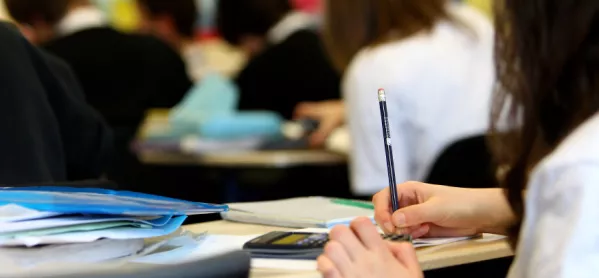The threat of a grammar school expansion in Kent, combined with the popularity of Ukip, could push selective education back to the fore after the general election, a former government adviser has warned.
Sam Freedman, head of research at Teach First and a former policy adviser to Michael Gove during his tenure as education secretary, said the imminent decision over whether to allow a girls’ grammar school in Kent to open a “satellite” campus could have far-reaching effects on the political agenda over the coming years.
The ruling on the bid by Weald of Kent grammar in Tonbridge to open an “annexe” 10 miles away in Sevenoaks was deferred until after the election by education secretary Nicky Morgan . But in a blog Mr Freedman warned that whatever the outcome, grammar schools were likely to form part of Tory education policy once again.
“If the decision eventually goes Kent’s way then we can expect to see a raft of similar proposals put forward in the remaining selective local authorities,” Mr Freedman writes. “We may even see grammars outside of these areas, that have converted to academy status, putting forward expansion bids without the support of their local authorities.
“This would of course be unwelcome to those of us who oppose selective education at 11 but the bigger danger is that this pressure, combined with the UKIP threat, pushes the next leader of the Conservative Party back towards wider support for ‘grammars’.”
The Conservative Party manifesto states that it will allow all good schools to expand “whether they are maintained schools, academies, free schools or grammar schools”.
But during his time as the party’s education spokesman both in opposition and in government, Mr Gove had always argued the case for comprehensive over selective education, Mr Freedman writes.
“But this belief is still not universal amongst his colleagues,” he states. “Two of the leading contenders to be the next leader of the Conservatives when [prime minister David] Cameron steps down - Theresa May and Boris Johnson - have spoken out in favour of grammars, which is indicative of their belief in the Tory grassroots’ attachment to selective education. This is despite it directly contradicting the ‘choice’ agenda that also appeals to Tory members (in a selective system parents don’t choose schools; schools choose pupils).”
Mr Freedman also describes Lord Kenneth Baker’s push for selective education at the age of 14 through his University Technical Colleges as “more insidious”, claiming he had forged an “unholy alliance” with “those on the left who oppose the Government’s focus on a core academic curriculum to 16”.
Opponents of selective education need to work together to boost parental confidence in the comprehensive system, he adds.
“If opponents of selection from across the political spectrum can stand together and say every child deserves a high quality academic education and that the comprehensive system is perfectly capable of providing that opportunity for every child then, perhaps by the time of the next election, we’ll be talking about how to get rid of the remaining 163 grammars rather than whether we should open more.”




